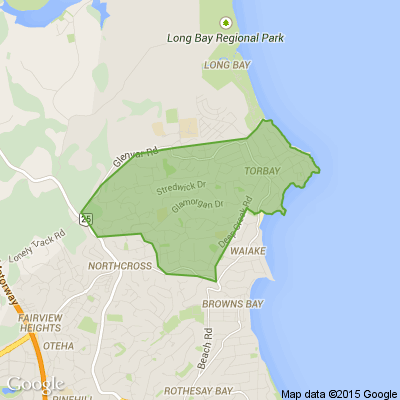How Do You Save Power?
Hi Neighbours,
Brace yourself! The days of stable electricity prices might be behind us as we transition to greener energy sources. But don’t worry—we’ve got the inside scoop on how to keep your costs under control.
Why the Change?
As part of our commitment to the Paris Agreement, New Zealand aims to cut emissions to 50% below 2005 levels by 2030 and reach net zero by 2050. Our power grid is increasingly powered by renewable sources like hydro, wind, geothermal, and solar, moving away from coal and natural gas.
The Challenge
This transition is great for the environment but can make our energy prices more volatile. With the power grid dependent on weather conditions, fluctuations in rain, wind, or sunlight can lead to higher reliance on fossil fuels, driving up electricity prices. Recently, wholesale electricity prices have surged to $850 per megawatt-hour, far above the average $150. While retailers have been shielding us from these spikes, this buffer may not last.
So, while we don’t have all the answers, we want to help you prepare for potential energy cost increases. Here are 19 cost-saving tips to keep you well-equipped before any energy crisis.
1. Review Your Power Plan Annually
Electricity plans and rates can change, so it’s best to review your plan at least once a year. Visit powerswitch.org.nz to compare different plans and ensure you’re on the most cost-effective option. Finding the right plan can lead to significant savings on your power bills.
2. Switch Off When Not in Use
Turning off lights, appliances, and electronics when they’re not in use is a straightforward way to reduce unnecessary energy consumption. This small habit can add up to substantial savings over time.
3. Optimize Hot Water Temperature
Set your hot water heater to 60°C. This temperature is sufficient for safety and comfort while avoiding the extra energy required to heat water to higher temperatures. Hot water accounts for 30% of your annual electricity costs.
4. Adjust Fridge and Freezer Settings
Ensure your fridge is set to 4-5°C and your freezer to -15 to -18°C. Regularly check that the door seals are tight to prevent cold air from escaping. Efficiently managed appliances use less energy.
5. Thaw Frozen Food Efficiently
Instead of using the microwave to thaw your food from frozen, thaw frozen food in the fridge for a day.
6. Embrace the Slow Cooker
Slow cookers are an energy-efficient cooking option. Running a slow cooker for 8 hours might cost as little as $0.20 in electricity. Using a slow cooker instead of an oven can help you save on your power costs.
7. Use a Mini Oven for Small Meals
For smaller cooking tasks, a mini oven is a more energy-efficient choice compared to a full-sized oven. It heats up faster and uses less power, which helps in reducing your overall electricity consumption.
8. Opt for Cold Water Washing
Using cold water in your washing machine saves energy. Heating water accounts for a significant portion of a washing machine’s energy use, so this switch can lead to lower electricity bills.
9. Clean Refrigerator Coils
Vacuuming the coils of your refrigerator helps it operate more efficiently by improving heat release. This maintenance task can contribute to lower electricity usage.
10. Maintain Dryer Filters
Regularly cleaning your dryer filters ensures the machine runs efficiently and doesn’t consume more energy than necessary.
11. Air Dry Laundry
Whenever possible, air dry your clothes instead of using a dryer. Air drying is a cost-effective way to reduce your electricity usage.
12. Maximise Natural Light and Heat
Open your curtains during the day to let in natural warmth and close them in the evening to trap heat. Up to 40% of your home’s heat can escape through windows, so managing this can help reduce heating costs.
13. Install a Water-Saving Shower Head
A low-flow shower head reduces water usage and the energy required to heat it. If your shower fills a 10-litre bucket in under a minute, upgrading to a more efficient model can save both water and energy, reducing your overall costs.
14. Boil Only What You Need
Fill your kettle only with the amount of water you need to boil. This avoids unnecessary energy consumption.
15. Invest in Energy-Efficient Appliances
Choose appliances with high energy-efficiency ratings. While they may have a higher upfront cost, they use less power, leading to long-term savings on your electricity bills.
16. Insulate Where Possible
Install insulation under your floor and in your ceiling to lower heating and cooling costs.
17. LED lighting
Swap to energy efficient lighting like LED down lights or light bulbs to dramatically increase savings.
18. Optimise Your Heated Towel Rail
Putting your heated towel rail on a timer rather than running it 24/7 can reduce your electricity consumption, while ensuring you always have a warm and dry towel.
19. Get the Right Size Heater
Ensure your heater is the appropriate size for your space. Use the Consumer NZ heater calculator to find the best option for your needs. An appropriately sized heater operates more efficiently and can help reduce your heating costs.
While these tips won’t take your power bill to $0, we’ve found the little things do add up.
Got your own power-saving hacks? Share them in the comments!
Cheers,
Josh from Anytime Electrics

⚠️ DOGS DIE IN HOT CARS. If you love them, don't leave them. ⚠️
It's a message we share time and time again, and this year, we're calling on you to help us spread that message further.
Did you know that calls to SPCA about dogs left inside hot cars made up a whopping 11% of all welfare calls last summer? This is a completely preventable issue, and one which is causing hundreds of dogs (often loved pets) to suffer.
Here are some quick facts to share with the dog owners in your life:
👉 The temperature inside a car can heat to over 50°C in less than 15 minutes.
👉 Parking in the shade and cracking windows does little to help on a warm day. Dogs rely on panting to keep cool, which they can't do in a hot car.
👉 This puts dogs at a high risk of heatstroke - a serious condition for dogs, with a mortality rate between 39%-50%.
👉 It is an offence under the Animal Welfare Act to leave a dog in a hot vehicle if they are showing signs of heat stress. You can be fined, and prosecuted.
SPCA has created downloadable resources to help you spread the message even further. Posters, a flyer, and a social media tile can be downloaded from our website here: www.spca.nz...
We encourage you to use these - and ask your local businesses to display the posters if they can. Flyers can be kept in your car and handed out as needed.
This is a community problem, and one we cannot solve alone. Help us to prevent more tragedies this summer by sharing this post.
On behalf of the animals - thank you ❤️

Worst Xmas ever?
There's a a lot of planning that goes into Christmas day and sometimes things just don't go to plan. But it can be a good thing - a family mishap or hilarious memory that you can laugh about in Christmases to come.
Whether you burnt the dinner or were stranded at an airport...
Share your Christmas mishaps below!









 Loading…
Loading…